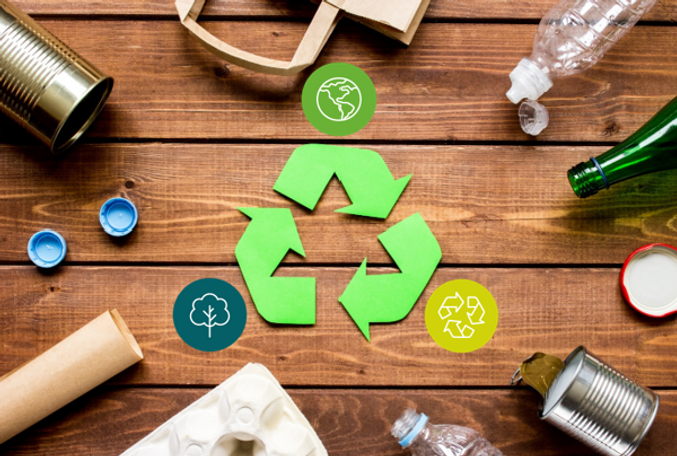
Last year the ASA commissioned independent research to consider consumer understanding of green disposal claims in advertising, as part of its wider Climate Change and the Environment project. If you didn’t catch the announcement of that via the ASA’s Greenspeaking with Confidence event, you can watch it here (it’s rather good).
Using the findings of that research as a point of focus, here we’ll pick out some helpful insights when it comes to using recyclable, compostable or biodegradable claims in your advertising.
Add important snippets
When making things clear in advertising, the need for qualifications isn’t a new concept. Anything considered material information (additional info that helps consumers understand a headline claim and allows them to make an informed decision) should be included where the omission is likely to mislead consumers materially – whether that’s limitations on a service or in relation to pricing for example.
When it comes to green disposal claims, here are a few specific examples that you might want to be aware of:
- What part of a product the claim refers to. If the product is made up of various components, or there’s also a reference to packaging in the ad, then it should be clear what parts the claim refers to.
- How to dispose of the product. This might be particularly relevant if the disposal process differs from a consumer’s expectations of what that process might entail – for example, needing to return the product to the manufacturer. Ads shouldn’t give the impression that something can be easily disposed of if there isn’t a process that’s accessible to UK consumers.
- The overall time in which the disposal process takes place. This will more likely be the case if it takes a long time for something to biodegrade or compost.
- Whether the disposal process results in harmful by-products. Suggesting that there is no negative impact when that isn’t the case is likely to be problematic.
Substantiate the claim
As with any claim, you’ll need to make sure you hold evidence that a product is recyclable, compostable or biodegradable. Evidence to show how the product was recycled was provided to substantiate a “100% recyclable” claim in a TV ad for bottled water (a bit more on 100% claims below). Another TV ad showed imagery of someone recycling a bottle along with a ‘recycle’ claim and recycling logo, and similarly the marketer provided evidence that all components of the bottle could be recycled.
Substantiation also extends to instances where a claim doesn’t match the likely conditions of use. A website described dog poo bags as biodegradable, but the likely disposal process meant that they would not be placed in the right conditions to biodegrade successfully. As a result, the claim that they were biodegradable had not been substantiated.
There are lots of nuances and complexities when it comes to product composition and disposal requirements. Each method will need specific conditions to be met to ensure that it’s completed successfully, so marketers should be cautious about using multiple different green disposal claims to describe a single product.
100% recycled/recyclable – or is it?
100% and similar absolute claims are likely to be seen as referring to a product in its entirety, so avoid using these if there are components that can’t be described in the same way. While the TV ad for bottle water mentioned above was ok to use a “100% recyclable” claim, a “100% recycled” claim was problematic because the cap and label were not made from recycled material.
Qualifying a “100% recycled claim” with “excludes cap and label” is likely to be seen as contradicting rather than clarifying the headline claim.
That’s a wrap
Carry on disposing of any green hang-ups by reading our updated Advertising Guidance on environmental claims (it even has its own green disposal claim section). Keen for more environmentally themed news, advice and resources? See here.
And for bespoke advice on any non-broadcast ads, the Copy Advice team is always here to help.
More on
-
Keep up to date
Sign up to our rulings, newsletters and emargoed access for Press. Subscribe now.


